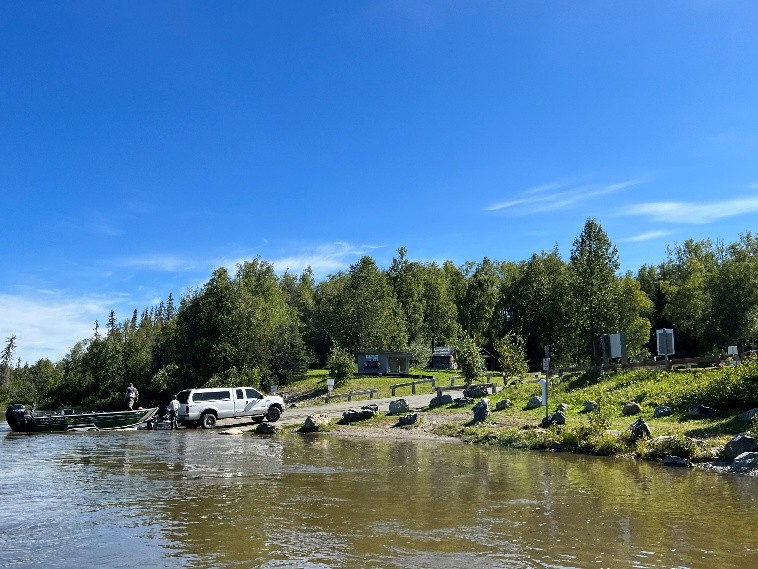Recreational Boating Access Projects
Overview
Boating Access projects provide facilities that create or add to public access for recreational boating.
Projects which may be eligible under this category include, but are not limited to:
- Launch facilities, such as ramps and boat lifts.
- Breakwaters.
- Marina improvements, including docking facilities for transient motorboat users.
- Land acquisition and development of boating access to sport fishing waterbodies.
- Fish cleaning stations.
- Restrooms, showers, potable water, refuse, and parking areas associated with the access facilities.
- Pump-out and dump stations.
- Access roads, bridges, and other requirements to provide public access to boating facilities.
- Camping facilities at areas accessible only by boat (must be accessible to motorboats).
- Engineering costs (planning and construction), environmental assessments, and permit applications.
- Water rights for the purpose of securing boating access.
- Dredging and aquatic weed control for waterbody accessibility, primarily for recreational boating.
- Navigational aids in the immediate area of access facilities.
- Operation and maintenance of Boating Access facilities.
- Facility signage and recognition of the Sport Fish Restoration Program.
- Publications to aid and inform boaters of access sites.

